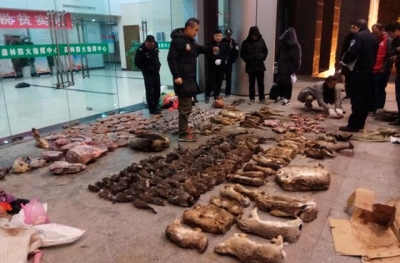
In the wake of the corona virus epidemic, China has temporarily banned the sale of wildlife in markets, restaurants and over e-commerce as part of efforts to contain the outbreak. While welcoming the move, conservationists are calling for a permanent ban as it will contribute to the recovery of wildlife populations worldwide, besides saving human lives.
The corona virus, which results in a zoonotic disease, is thought to have originated in a “seafood” market in Wuhan that sold much more than fish. Chinese authorities found everything from hedgehogs and wild boars to crocodiles for sale there, providing ideal conditions for viruses to jump to new hosts and ultimately, to people. (Zoonotic diseases spread from animals to humans.) Consumption of several vulnerable species – for example, pangolins, rhinos, elephants – is common in China. There is another theory that believes that pangolin may have passed the virus from bats to humans. Pangolin is imported in huge numbers to Chinese markets for food and medicine.
A host of other animals too are important to China for meat, medicine etc. through illegal wildlife trade. China may be the world’s largest market for wildlife products, but wildlife trade is rampant throughout the world. Wildlife trafficking puts many animals and birds at risk of extinction. A study published last year estimated that one in every four bird or mammal species on earth is caught in the wildlife trade.
Picture Credit : Google

